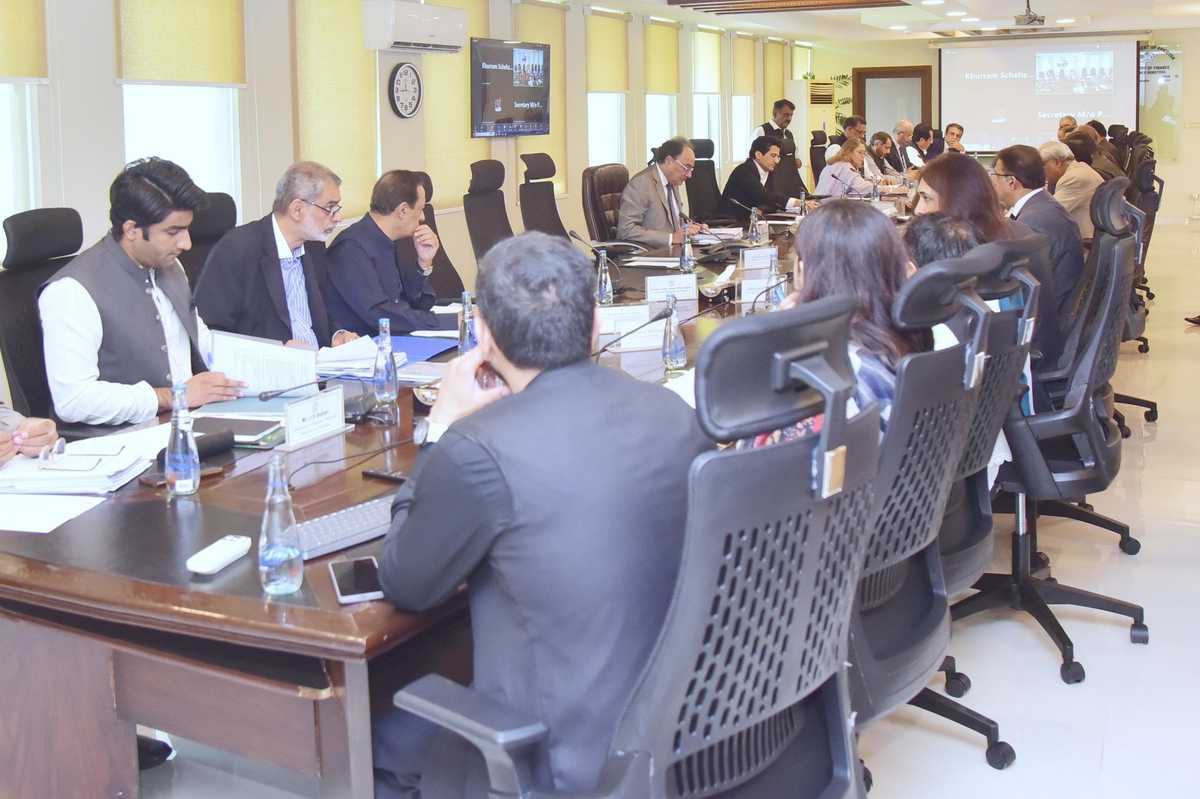Pakistan government approves policy to attract financing for eco-friendly projects
ECC backs Green Taxonomy, housing subsidy, and steel sector boost; urges reforms in telecom and food pricing
Business Desk
The Business Desk tracks economic trends, market movements, and business developments, offering analysis of both local and global financial news.

ECC meeting chaired by Finance Minister Muhammad Aurangzeb.
Courtesy: Finance Ministry
Pakistan's Economic Coordination Committee (ECC) approved a wide range of policy measures Thursday to boost industrial growth, promote environmental sustainability, support skills development, and expand affordable housing.
The meeting, chaired by Finance Minister Muhammad Aurangzeb, was attended by ministers for power, petroleum, and commerce, along with senior officials from relevant departments.
The ECC endorsed a Ministry of Commerce report on strengthening the steel sector under the National Tariff Policy 2025–30. The report focused on cutting production costs and enhancing export competitiveness.
It also allowed the Commerce Ministry to appeal a Lahore High Court ruling that granted gas and RLNG tariff concessions to Ghani Glass Ltd. The ECC found the appeal justifiable, noting that energy subsidies for export sectors had already been withdrawn.
In a step toward environmental reform, the ECC approved Pakistan’s first Green Taxonomy. Proposed by the Ministry of Climate Change, the taxonomy aims to attract financing for eco-friendly projects. The finance minister called it "long overdue."
The ECC also approved a Rs. 1 billion government guarantee to support the launch of the Pakistan Skill Impact Bond (PSIB). The bond, led by the Ministry of Education, will focus on outcomes-based skill training. The committee advised transitioning to public-private partnerships to lessen dependence on state guarantees.
In housing, a new markup subsidy and risk-sharing scheme for low-cost housing was approved. The ECC urged the Ministry to build a national housing database in collaboration with provincial authorities for more effective policy execution.
The Ministry of Industries briefed the committee on the vegetable ghee and oil market. While supply levels were said to be adequate, the ECC voiced concern that falling global prices were not translating into relief for local consumers. It called for tighter market oversight and coordination with the Competition Commission, the National Price Monitoring Committee, and provincial governments.
The ECC approved revised charges for Radio-Based Services, submitted by the Ministry of IT and Telecommunication. It ordered a periodic review every three to five years to align with economic and tech shifts. The body also approved changes to the advisory committee overseeing IMT spectrum allocation, a key step for enhancing mobile broadband.
ECC also declared ship breaking and recycling as a recognized industry. The Ministry of Maritime Affairs was directed to work with the Power Division to analyze power usage patterns, helping determine whether industrial power rates should apply to the sector.







Comments
See what people are discussing